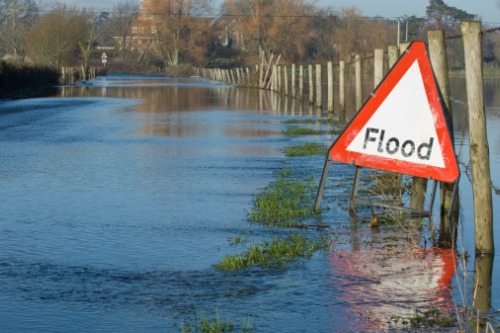

The Environment, Food, and Rural Affairs (EFRA) Committee at the House of Commons has published its latest flooding report as part of the Select Committee’s inquiry, and it is supported by reinsurance scheme Flood Re.
In its 63-page report released today (February 08), the EFRA Committee stated: “A step change is needed in promoting the uptake of appropriate property flood resilience measures. It is important that reforms to Flood Re to incentivise PFR (property flood resilience) form part of wider work aimed at encouraging people to improve the flood resilience of their own property.
“We welcome the government’s call for evidence on ways to accelerate PFR uptake, and the findings of our inquiry should inform this work. Following its current call for evidence, the government should publish an action plan of new measures to deliver a significant increase in the uptake of property flood resilience, including identifying where more evidence is needed on which measures will be most appropriate and effective.”
Additionally, noted the Commons Select Committee, the government should consult on amending building regulations, with the goal of ensuring an “ambitious level of flood resilience” in new build and reinstatement works. It is also of the view that developing a consistent national funding stream for PFR measures must be considered.
The Parliamentary flooding inquiry, which began in March 2020, examined several aspects of government policy on flood risk management and the response to increasingly frequent severe flood events. Key findings include an absence of support for the long-term recovery of communities in the aftermath of a flood, as well as the “not working” approach to promoting sustainable drainage systems.
The Select Committee also found the need for the government to provide leadership to local planning authorities that may lack the knowledge and/or resources to factor climate change impacts into their plans and development decisions.
Commenting on the freshly published report, Flood Re chief executive Andy Bord said: “We welcome the EFRA Select Committee’s recognition that severe weather events have already become the rule and not the exception in the UK. They are right to highlight the need for long-term funding to maintain existing, as well as new, flood defences.
“Yet while defences are important, they are only part of the solution to the long-term challenges posed by climate change. The Committee’s report highlights the fact that a ‘step change is needed in promoting the uptake of appropriate property flood resilience measures’. We believe our proposals for Flood Performance Certificates can play an important role by providing information to homeowners on flood risk and potential resilience measures.”
Bord, who gave oral evidence to the Committee last September, went on to stress that it is vital that the planning system works effectively at a local level to ensure that development does not take place in areas that are at risk of flooding.
He added: “In the year that COP-26 (Conference of the Parties) comes to the UK, the Committee’s report is an important contribution to the ongoing debate of how best to mitigate the impact of flooding – one of the most damaging manifestations of climate change.
“As the government has already shown leadership in its commitment to achieving net zero carbon emissions by 2050, the UK likewise has an opportunity to promote place-based resilience and support economic growth as a world leader in adaptation with the adoption of appropriate resilience standards.”
The flooding report – which also said it is essential that the government works with Flood Re and the insurance industry to identify and address continuing obstacles to insurance uptake – can be accessed via the UK Parliament website. The government’s response, meanwhile, is due by April 08.
